Human Cloning: An Islamic Perspective
Introduction
The contemporary scientific revolution has enriched humanity with what has not been considered in the world of animals and plants. It is expected to lead to results and revolutions in knowledge that could upset the balance, especially in the world of human reproduction. Scottish researcher Ian Wilmot announced that he and his scientific team had achieved a new step in the path of specific reproduction, as they were able in the experimental farm to develop techniques that led to a female giving birth to a copy of itself without fertilization.[i]
What is Cloning?
Cloning is of two types:
The first is the fusion or splitting of the egg, and it begins with a fertilized egg (an egg entered by the sperm), which divides into two cells, stimulating each of them to start over as if it were the mother cell, and each of them becomes an independent embryo, even if they are similar because they were issued from one egg.[ii]
The second is normal cloning which does not depend on sex cells but rather is by placing the nucleus of a cell inside the shell of an egg without a nucleus. The cloning of the resulting cell into an embryo is an inherited copy that is almost identical to the owner of the somatic cell.[iii]
Possibilities of Human Cloning
Two important points to mention here are:
First thing: What is an accident in the field of the "science of human cloning."
- The success of the IVF process and the implantation of a fertilized egg in the womb of the birth mother (uterus), and it is no longer surprising to talk about this issue among the public.
- The process of transferring the embryo from one mother to another, which is similar to a test surrogate mother, except that fertilization occurs in the uterine canal of the egg owner, and after a few days uterine dialysis is performed to obtain a multi-cell embryo, which is then implanted in the uterus of the surrogate mother, which will carry it until birth.
- Isolate the cell from a multi-cell embryo (16 cells, for example) and examine it to make sure it is free of certain genetic diseases, then another embryo is implanted in the mother's womb for development until full pregnancy.
Second point: What happened recently in "The Science of Animal Breeding":
- The birth of a sheep, Dolly.
- The separation of the fertilized egg after its first division into two cells, each of which produces twin animals that do not depend on the second (estimated).
- A fertilized egg, after (3-4) division, becomes a multi-cell embryo (8-16 cells). These cells are isolated, and each of them is planted separately to continue its development into an independent embryo.
What is happening now in the science of human and animal reproduction makes us believe that human cloning can be achievable.
Cloning and Islamic View
The debate is intensifying among Muslim scholars about the jurisprudential opinion regarding the cloning process in general and human cloning. We can find various fatwas issued by scholars, and some of them do not differentiate between the different types of cloning and its techniques, so the fatwas vary between absolute prohibition and permission with conditions.
A medical jurisprudence symposium was held in Casablanca, Morocco, between 14-17 June 1997 AD, where the Islamic Organization for Medical Sciences, the Academy of Islamic Fiqh in Jeddah, the Regional Office of the World Health Organization, the Hassan II Foundation for Scientific and the Islamic Educational and Scientific Organization participated in it (ISESCO) with the presence of a group of jurists, doctors, pharmacists, researchers, jurists and others. The conference discussed the issue of human cloning, and at the end of the meeting issued a proposal that was presented to the Islamic Fiqh Academy Council at its tenth conference session held in Jeddah in the period from (23-28) Safar in 1418 Hijrah about human cloning, research and recommendations issued by the medical jurisprudence symposium.
The key points from ninth and tenth medical and conference of The Council of the Islamic Fiqh Academy are:
Allah created man in the best form, and honored him with the utmost honor:
وَلَقَدْ كَرَّمْنَا بَنِىٓ ءَادَمَ وَحَمَلْنَٰهُمْ فِى ٱلْبَرِّ وَٱلْبَحْرِ وَرَزَقْنَٰهُم مِّنَ ٱلطَّيِّبَٰتِ وَفَضَّلْنَٰهُمْ عَلَىٰ كَثِيرٍ مِّمَّنْ خَلَقْنَا تَفْضِيلًا
He adorned him with reason, honored him with assignment, made him a caliph on earth and colonized him in it, and honored him by carrying his message that is in harmony with his instinct:
فَأَقِمْ وَجْهَكَ لِلدِّينِ حَنِيفًا ۚ فِطْرَتَ ٱللَّهِ ٱلَّتِى فَطَرَ ٱلنَّاسَ عَلَيْهَا ۚ لَا تَبْدِيلَ لِخَلْقِ ٱللَّهِ ۚ ذَٰلِكَ ٱلدِّينُ ٱلْقَيِّمُ وَلَٰكِنَّ أَكْثَرَ ٱلنَّاسِ لَا يَعْلَمُونَ
Allah SWT taught man what he did not know and commanded him to search, look, think and contemplate, addressing him in many verses. And Islam did not place a restriction on the freedom of scientific research, as it is a matter of adopting God’s law in His creation.
But Islam also requires that the door not be left open without controls for the applications of the results of scientific research to enter the public arena without passing through the filter of Sharia, to pass what is permissible and block what is forbidden and avert their corruption. This science must preserve man’s dignity, status, and the purpose for which God created him. It should not be used as a field for experimentation. And based on the foregoing research, discussions, and Sharia principles that were presented to the Council of the Synod, it decided the following:
Firstly, the prohibition of human cloning in the two ways mentioned or in any other way that leads to human cloning. Moreover, the prohibition of all cases in which a third party enters into the marital relationship, whether it is a uterus, an egg, a sperm, or a somatic cell for cloning.
Besides, it is legally permissible to apply cloning techniques and genetic engineering in the fields of germs and other microorganisms, plants and animals, within the limits of legal controls in a way that achieves interests and averts harm.
Furthermore, an appeal to Islamic countries to issue the necessary laws and regulations to close direct and indirect doors to local or foreign bodies, research institutions, and foreign experts, in order to prevent Islamic countries from using human cloning as a field for human cloning experiments and promoting them.
Other than that, the call for the establishment and support of scientific institutes and institutions that conduct research in the field of biology and genetic engineering in a field other than the field of human cloning, in accordance with Sharia regulations, so that the Islamic world does not remain dependent on others in this field.
Scientific and authentic enquiry is needed before entering to this kind of era in particular and mass awareness is also crucial. Allah said in al-Nisa: 83:
وَإِذَا جَآءَهُمْ أَمْرٌ مِّنَ ٱلْأَمْنِ أَوِ ٱلْخَوْفِ أَذَاعُوا۟ بِهِۦ ۖ وَلَوْ رَدُّوهُ إِلَى ٱلرَّسُولِ وَإِلَىٰٓ أُو۟لِى ٱلْأَمْرِ مِنْهُمْ لَعَلِمَهُ ٱلَّذِينَ يَسْتَنۢبِطُونَهُۥ مِنْهُمْ ۗ وَلَوْلَا فَضْلُ ٱللَّهِ عَلَيْكُمْ وَرَحْمَتُهُۥ لَٱتَّبَعْتُمُ ٱلشَّيْطَٰنَ إِلَّا قَلِيلًا
When there comes to them some matter touching (public) safety or fear they divulge it. If they had only referred it to the Apostle or to those charged with authority among them the proper investigators would have tested it from them (direct). Were it not for the Grace and Mercy of Allah unto you all but a few of you would have fallen into the clutches of Satan.
Conclusion
Cloning is one of the new knowledge areas that has been discovered in this era. However, human cloning is not permissible due to several reasons such as tampering with Allah’s creation, etc. The research of human cloning should be banned and stopped forever to avoid any problems occurring. On the other hand, animal and plant cloning is permissible as far as the cloning is not causing any harm.
Major Reference
الدكتور محمد الهواري. (د.ت.). الاستنساخ البشري بین الثورة العلمیة والضوابط الأخلاقیة والفقهیة، المجلس الأوربي للإفتاء والبحوث.
[i] الدكتور محمد الهواري. (د.ت.). الاستنساخ البشري بین الثورة العلمیة والضوابط الأخلاقیة والفقهیة، المجلس الأوربي للإفتاء والبحوث. ص3.
[ii] الدكتور محمد الهواري. (د.ت.). الاستنساخ البشري بین الثورة العلمیة والضوابط الأخلاقیة والفقهیة، المجلس الأوربي للإفتاء والبحوث. ص33.
[iii] مراجع نفسه.
About the author
Muhammad Kamal Ihkam Bin Mukmin Hakim is an undergraduate student of the Department of Fiqh and Usul al-Fiqh at International Islamic University (IIUM), Kuala Lumpur.
Disclaimer
The views expressed in this article are the author’s own and do not necessarily mirror Islamonweb’s editorial stance.

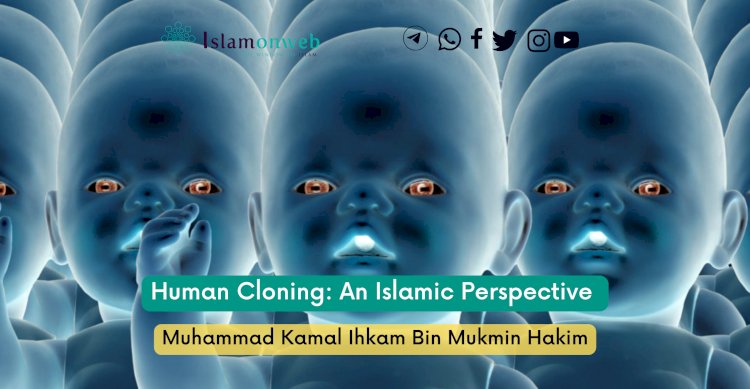


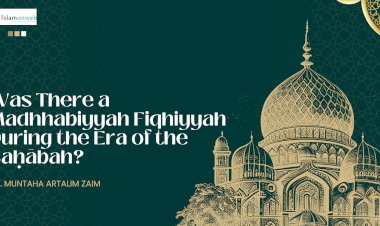
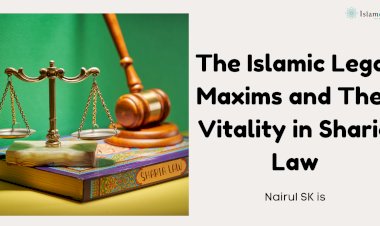


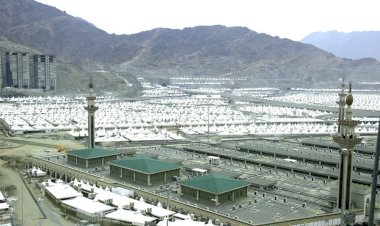
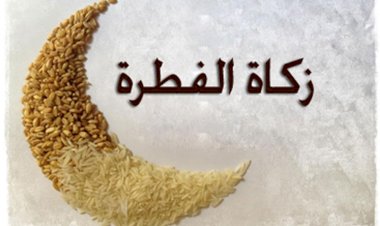














Leave A Comment